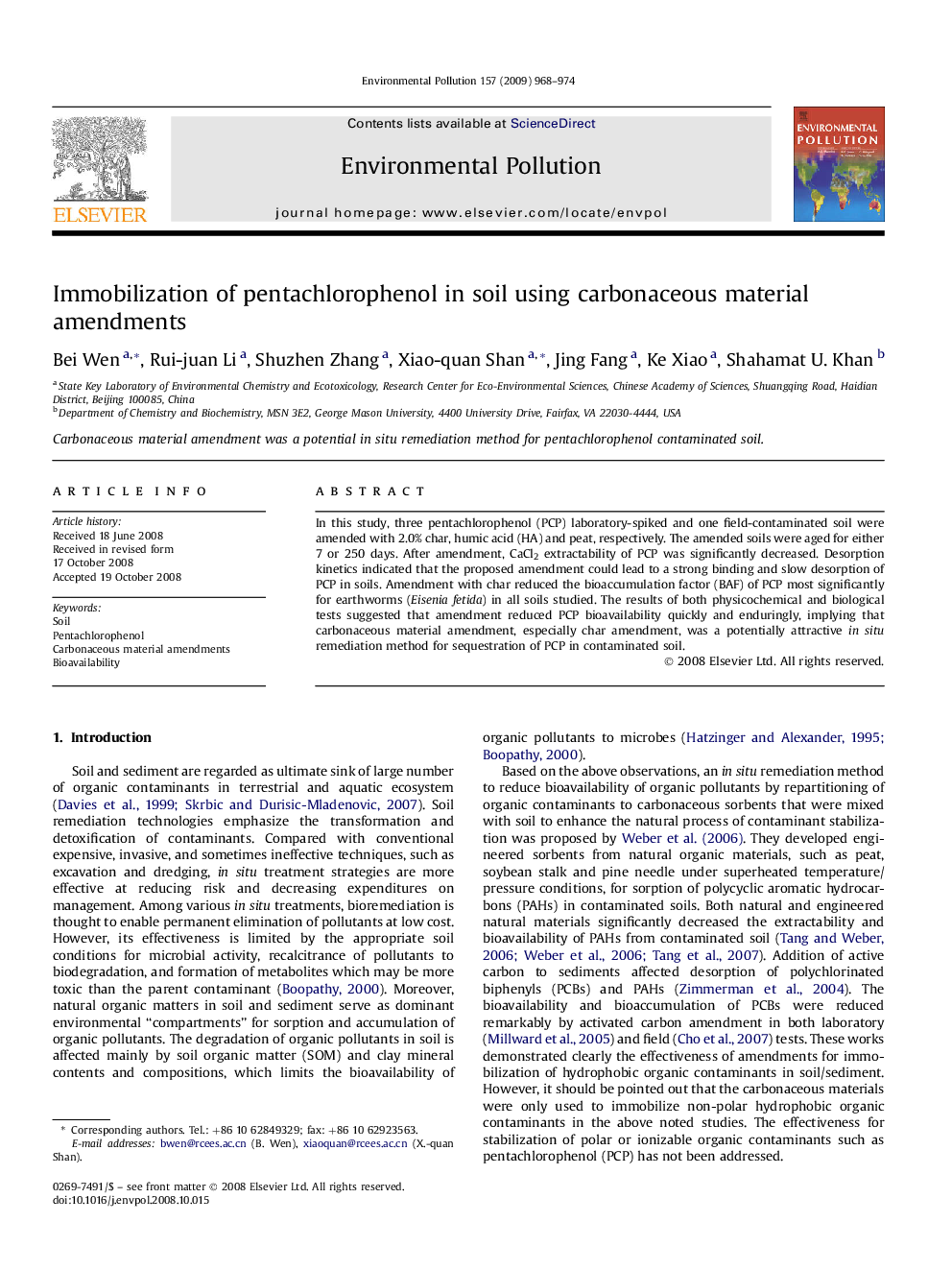| Article ID | Journal | Published Year | Pages | File Type |
|---|---|---|---|---|
| 4426609 | Environmental Pollution | 2009 | 7 Pages |
In this study, three pentachlorophenol (PCP) laboratory-spiked and one field-contaminated soil were amended with 2.0% char, humic acid (HA) and peat, respectively. The amended soils were aged for either 7 or 250 days. After amendment, CaCl2 extractability of PCP was significantly decreased. Desorption kinetics indicated that the proposed amendment could lead to a strong binding and slow desorption of PCP in soils. Amendment with char reduced the bioaccumulation factor (BAF) of PCP most significantly for earthworms (Eisenia fetida) in all soils studied. The results of both physicochemical and biological tests suggested that amendment reduced PCP bioavailability quickly and enduringly, implying that carbonaceous material amendment, especially char amendment, was a potentially attractive in situ remediation method for sequestration of PCP in contaminated soil.
